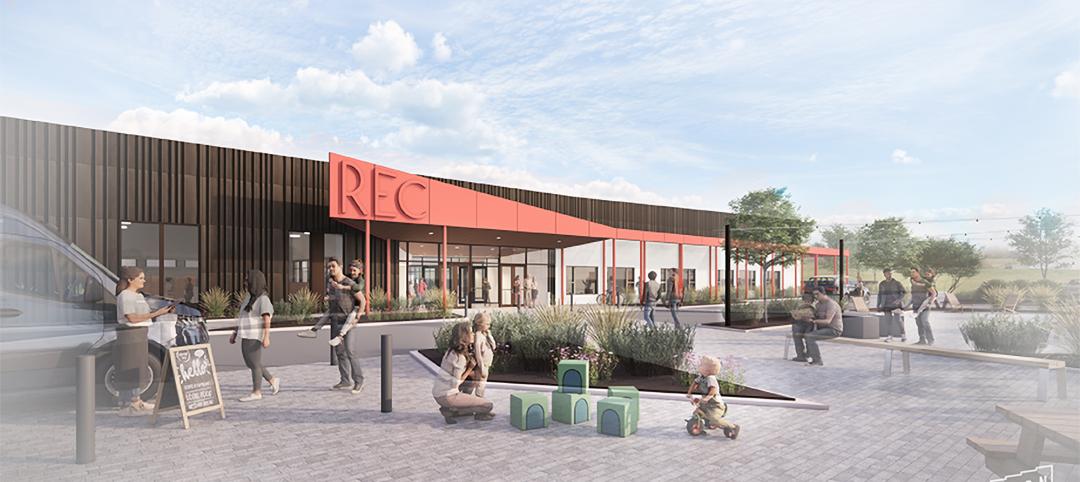The architecture profession continues to grow along with a gradually recovering economy, based on the results of the 2014 Survey of Architectural Registration Boards, conducted by the National Council of Architectural Registration Boards (NCARB).
The 2014 survey of U.S. jurisdictions indicates that there are 107,581 architects in the United States, a 1.6 percent increase from 2013. The number of architects has grown 3.1 percent since 2011.
“Our survey documents an architecture profession that is thriving,” said Michael J. Armstrong, CEO of NCARB. “NCARB will continue to spearhead changes in architectural licensing standards to support a growing architecture industry.”
Recent Bureau of Labor Statistics data also points to growing opportunities for architects in the American economy. Architectural and engineering services added 5,000 new jobs in September and 2,900 new jobs in October.
All states, the District of Columbia, Guam, Puerto Rico, and the U.S. Virgin Islands require individuals to be licensed (registered) before they may call themselves architects or contract to provide architectural services. Data collected for the fall 2014 Survey of Registration Boards are from all 54 U.S. jurisdictions and reflect registration levels from July 2013 through June 2014.
To become licensed, most jurisdictions require a professional degree in architecture and completion of an internship program. NCARB’s Intern Development Program (IDP) is a comprehensive program to provide interns with the knowledge and skills needed to practice architecture. All jurisdictions require completion of the Architect Registration Examination (ARE). Most states also require continuing education to maintain a license.
NCARB assists registration boards by leading the development and application of licensing standards and the credentialing of architects. The NCARB Certificate program is a program that allows architects to expedite reciprocity – the ability to offer architectural services in different jurisdictions after earning an initial license.
As part of the survey report, NCARB also compiles its own data on the number of reciprocal licenses earned each year, reporting 119,200 reciprocal licenses in 2014. That is down slightly—about 2 percent—from the previous year. “As the economy improves, NCARB suspects that many architects are finding new projects close to home without having to go to other jurisdictions,” Armstrong said. “We’ll keep an eye on this indicator as the economy moves forward.”
In total, the NCARB 2014 Survey reports that the 107,581 architects hold 226,181 licenses nationally. California reported the highest number of resident architects, at 16,618 total professionals, as well as the highest number of total registrations (resident plus reciprocal licenses) at 20,595.
Related Stories
Designers | Sep 5, 2023
Optimizing interior design for human health
Page Southerland Page demonstrates how interior design influences our mood, mental health, and physical comfort.
K-12 Schools | Sep 5, 2023
CHPS launches program to develop best practices for K-12 school modernizations
The non-profit Collaborative for High Performance Schools (CHPS) recently launched an effort to develop industry-backed best practices for school modernization projects. The Minor Renovations Program aims to fill a void of guiding criteria for school districts to use to ensure improvements meet a high-performance threshold.
Market Data | Sep 5, 2023
Nonresidential construction spending increased 0.1% in July 2023
National nonresidential construction spending grew 0.1% in July, according to an Associated Builders and Contractors analysis of data published today by the U.S. Census Bureau. On a seasonally adjusted annualized basis, nonresidential spending totaled $1.08 trillion and is up 16.5% year over year.
Sports and Recreational Facilities | Sep 1, 2023
New Tennessee Titans stadium conceived to maximize types of events that can be hosted
The new Tennessee Titans stadium was conceived to maximize the number and type of events that the facility can host. In addition to serving as the home of the NFL’s Titans, the facility will be a venue for numerous other sporting, entertainment, and civic events. The 1.7-million sf, 60,000-seat, fully enclosed stadium will be built on the east side of the current stadium campus.
Mass Timber | Sep 1, 2023
Community-driven library project brings CLT to La Conner, Wash.
The project, designed by Seattle-based architecture firm BuildingWork, was conceived with the history and culture of the local Swinomish Indian Tribal Community in mind.
Office Buildings | Aug 31, 2023
About 11% of U.S. office buildings could be suitable for green office-to-residential conversions
A National Bureau of Economic Research working paper from researchers at New York University and Columbia Business School indicates that about 11% of U.S. office buildings may be suitable for conversion to green multifamily properties.
Adaptive Reuse | Aug 31, 2023
New York City creates team to accelerate office-to-residential conversions
New York City has a new Office Conversion Accelerator Team that provides a single point of contact within city government to help speed adaptive reuse projects. Projects that create 50 or more housing units from office buildings are eligible for this new program.
Codes and Standards | Aug 31, 2023
Community-led effort aims to prevent flooding in Chicago metro region
RainReady Calumet Corridor project favors solutions that use natural and low-impact projects such as rain gardens, bioswales, natural detention basins, green alleys, and permeable pavers, to reduce the risk of damaging floods.
Adaptive Reuse | Aug 31, 2023
Small town takes over big box
GBBN associate Claire Shafer, AIA, breaks down the firm's recreational adaptive reuse project for a small Indiana town.
Giants 400 | Aug 31, 2023
Top 35 Engineering Architecture Firms for 2023
Jacobs, AECOM, Alfa Tech, Burns & McDonnell, and Ramboll top the rankings of the nation's largest engineering architecture (EA) firms for nonresidential buildings and multifamily buildings work, as reported in Building Design+Construction's 2023 Giants 400 Report.

















